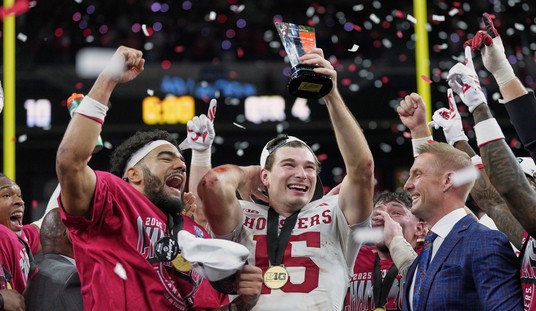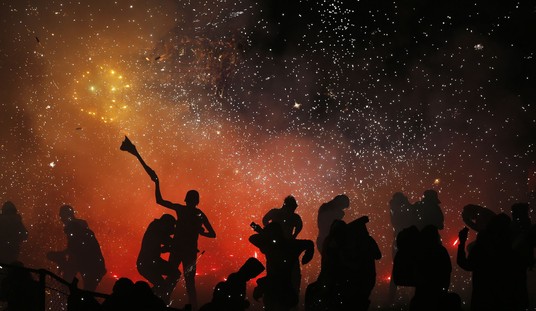by Michael J. Totten
Here’s a long piece I wrote some time ago for City Journal which is now available online for free. Hope you enjoy it.
On February 17, 2008, Kosovo declared independence from Serbia, becoming the newest country in the world—and one of the most unusual. Most of its citizens are Muslim, an oddity in Europe; further, unlike most Muslim-majority nations, Kosovo is overwhelmingly pro-American, and its relations with Israel are excellent as well. No Arab countries have recognized the new nation’s existence yet, and only Saudi Arabia has said that it will. Perhaps this isn’t surprising, since Kosovars differ more radically from their brothers in the Arab world than any other Islamic people on earth.
Most of this difference is probably news to distant observers. Kosovo lies in the former Yugoslavia on Europe’s Balkan peninsula, a distant corner of southeastern Europe where relatively few travelers venture. The fog of war never really lifted after the combatants’ guns fell silent in 1999. The grievances that animated the warring parties seemed inscrutable to many Westerners, who often didn’t understand why Western powers got involved in the first place. Yet despite their obscurity, Kosovars today stand as a rebuttal to the notion that Muslims will be forever shackled to authoritarian rule and wedded to war with the modern, pluralistic “Other.”
About 90 percent of Kosovo’s 2 million inhabitants are ethnic Albanians; 7 percent are Serbs. Of the Albanians, about 3 percent are Catholic, and all the rest are at least nominal Muslims; the Serbs, meanwhile, are all Orthodox Christians. Against this backdrop, many observers interpreted the Balkan wars that tore Yugoslavia to pieces during the 1990s as an inevitable resurgence of ancient hatreds in a post-Communist ideological vacuum.
But the truth was that Serbian nationalists, led by Yugoslavian dictator Slobodan Milošević, had deliberately crafted their own ethnic nationalism as an ideology to replace Communism, seeking to retain power and seize as much territory as possible as the Yugoslav federation unraveled. On June 29, 1989, just a few months before the Berlin Wall fell, Milošević delivered a thunderous speech to throngs of budding Serbian nationalists in the Kosovar village of Kosovo Polje. Exactly 600 years earlier, on the nearby Field of Blackbirds, the Turks had defeated Serbian ruler Tsar Lazar in an epic battle, ending the sovereignty of Serbia’s medieval kingdom and beginning its absorption into the Ottoman Empire. “No one will ever beat you again,” Milošević promised his audience.
Ethnic conflict was relatively new to the area. “There have been many battles and wars in Kosovo over the centuries,” historian Noel Malcolm writes in Kosovo: A Short History, “but until the last 100 years or so none of them had the character of an ‘ethnic’ conflict between Albanians and Serbs. Members of those two populations fought together as allies at the battle of Kosovo in 1389—indeed, they probably fought as allies on both sides of that battle.”
Nevertheless, Milošević used the ancient grievance, along with others both real and imagined, to kindle Serbian nationalism—“a totalitarian ideology,” as Serbian writer Filip David calls it. Three months after his speech at Kosovo Polje, Milošević revoked Kosovo’s political autonomy and imposed an apartheid-like system on its ethnic Albanian majority. There followed three wars in the breakaway republics of Slovenia, Bosnia, and Croatia, and then a fourth of ethnic cleansing in Kosovo at a time when the United States and NATO were in no mood to tolerate any more violent destabilization in Europe. NATO bombarded Yugoslav targets for two and a half months in 1999 until Milošević capitulated and relinquished control of Kosovo to NATO and Russia.
Though Albanian nationalism is less ideological than Serbian nationalism, it, too, can express itself through ugly outbursts of violence. After ethnic Albanian refugees returned to Kosovo under NATO protection in 1999, some lashed out at Serb civilians, houses, and Orthodox churches. Another wave of anti-Serb violence broke out in 2004, following rumors that Albanian children had drowned in the Ibar River after being chased off by Serbs.
But this violence, like the 1999 war, rose out of ethnic tensions, not religious ones. These were fights not between Muslims and Christians but between Albanians and Serbs—and though, again, most Albanians are Muslim and all Serbs are Orthodox Christian, the distinction is crucial. Kosovo’s Albanian Muslims and Albanian Catholics get along perfectly well with one another; in fact, during the war, they fought side by side. And in the later attacks, ethnic Albanian mobs burned Orthodox churches because they were Serb, not because they were Christian. Catholic churches weren’t touched—because their congregations were Albanian. (This isn’t a matter of anti-Orthodox sentiment among Muslims, either. Though no Albanian Orthodox Christians live in Kosovo, 20 percent of the population in Albania itself is Albanian Orthodox, and relations between them and the Albanian Muslim majority are perfectly fine.)
Some observers, especially in Serbia, have blamed the violence in 1999 and 2004 on Islamist jihadists. Those who live and work in Kosovo, and who are charged with keeping the peace, dismiss the allegation. “We’ve been here for so long and not seen any evidence of it that we’ve reached the assumption that it is not a viable threat,” says Zachary Gore, a U.S. Army sergeant stationed in eastern Kosovo.
Kosovo’s brand of Islam may be the most liberal in the world. I saw no more women there wearing conservative Islamic clothing—one or two per day at most—than I’ve seen in Manhattan. There is no gender apartheid even in Kosovo’s villages. Alcohol flows freely in restaurants, cafés, and bars, where you’ll see as many young women in sexy outfits as you’d find in any Western European country. Aside from the minarets on the skyline, there is no visible evidence that Kosovo is a Muslim-majority country at all.
“Read the rest in City Journal”:http://www.city-journal.org/2008/18_4_kosovo_muslims.html.
The (Really) Moderate Muslims of Kosovo

Advertisement








Join the conversation as a VIP Member